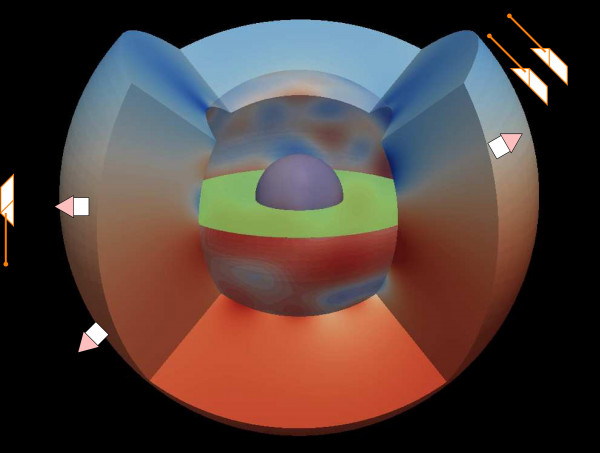Assimilating ocean and geophysics data
A key problem in many sciences is data assimilation using a model (maybe an uncertain model) and data (maybe noisy data) to assess the state of a system. Our work on implicit sampling makes it possible to produce sample states that have a consistently high probability, reducing by a large factor the exploratory computing that needs to be done to eliminate unlikely possibilities. This is a major breakthrough. We have applied the new methods to problems that range from determining the biological state of oceans to analyzing data about the earth’s magnetic field and combustion models.

About Berkeley Lab
Founded in 1931 on the belief that the biggest scientific challenges are best addressed by teams, Lawrence Berkeley National Laboratory and its scientists have been recognized with 16 Nobel Prizes. Today, Berkeley Lab researchers develop sustainable energy and environmental solutions, create useful new materials, advance the frontiers of computing, and probe the mysteries of life, matter, and the universe. Scientists from around the world rely on the Lab’s facilities for their own discovery science. Berkeley Lab is a multiprogram national laboratory, managed by the University of California for the U.S. Department of Energy’s Office of Science.
DOE’s Office of Science is the single largest supporter of basic research in the physical sciences in the United States, and is working to address some of the most pressing challenges of our time. For more information, please visit energy.gov/science.









